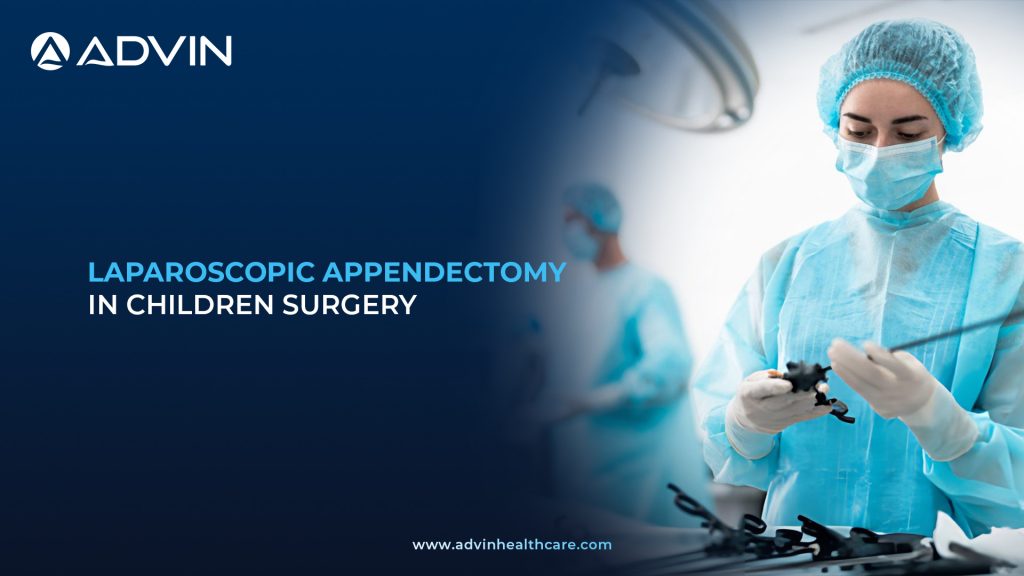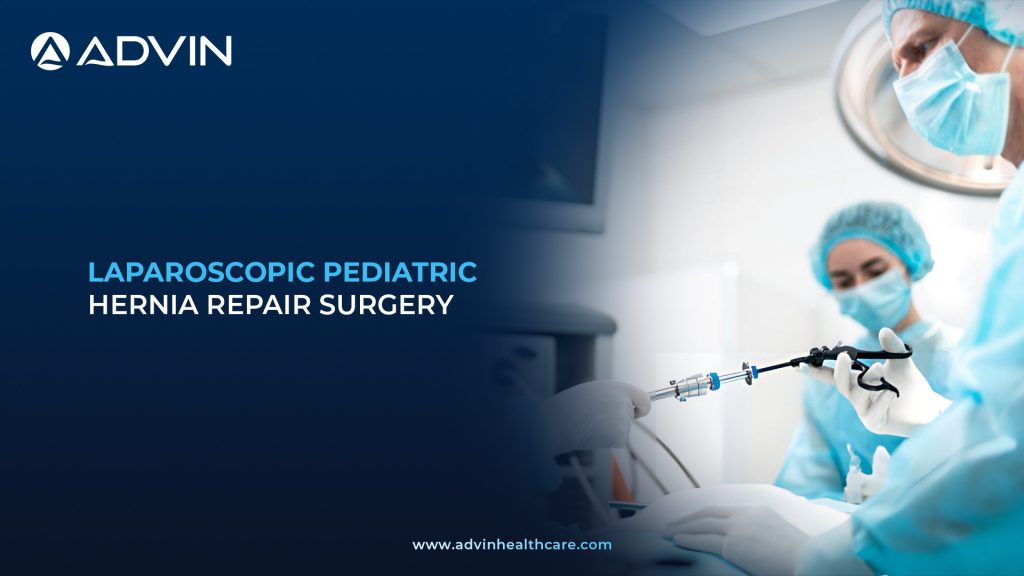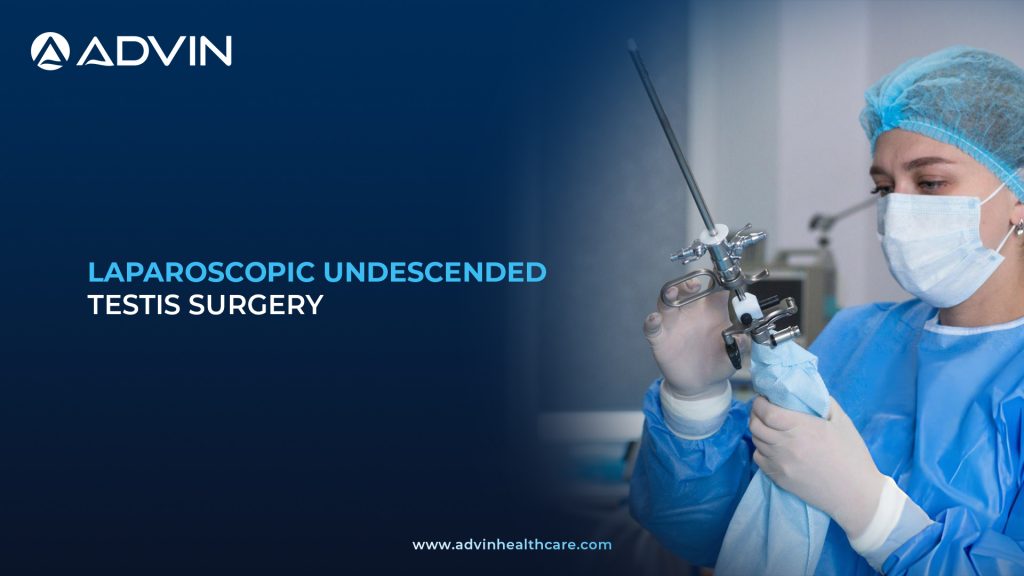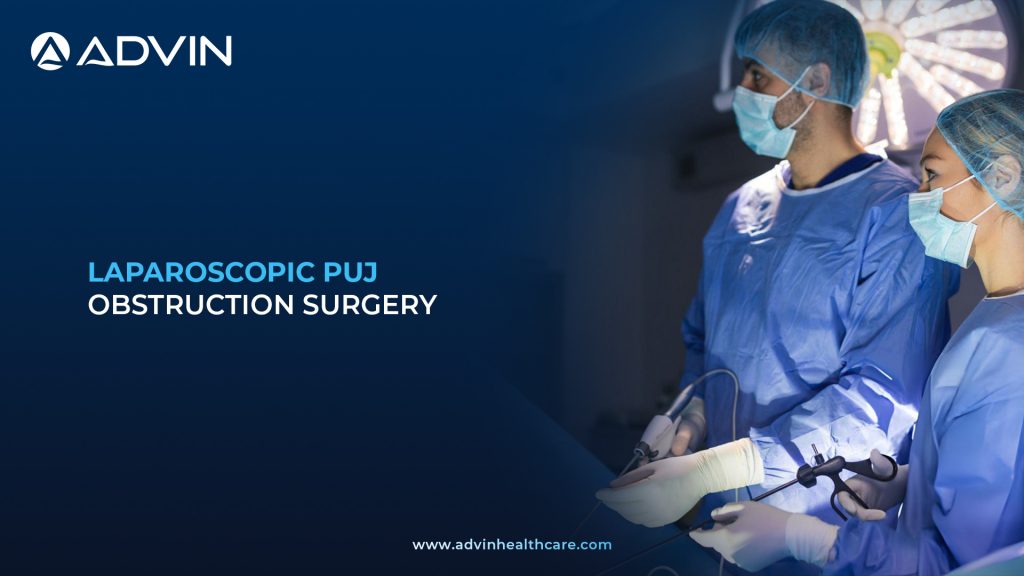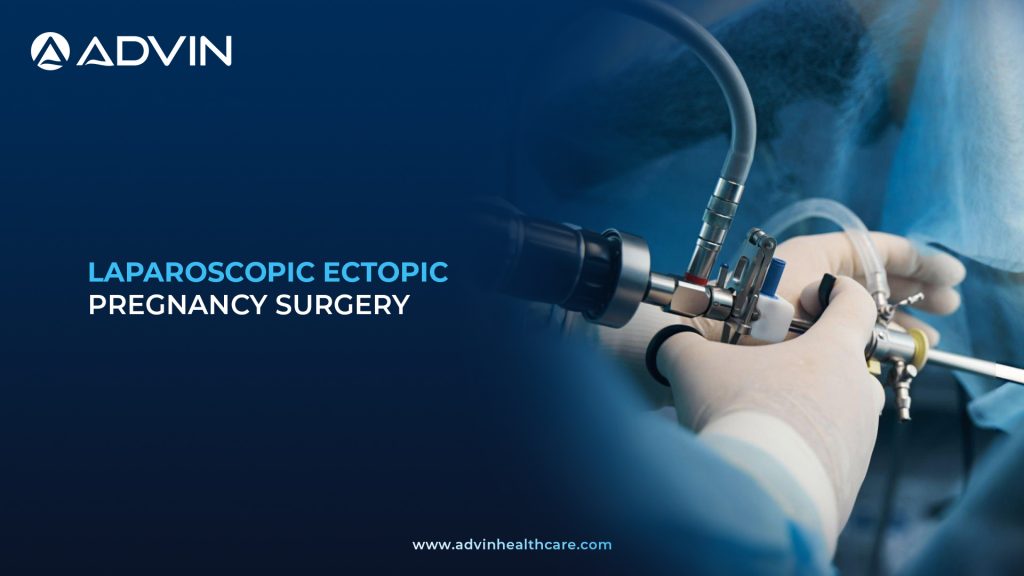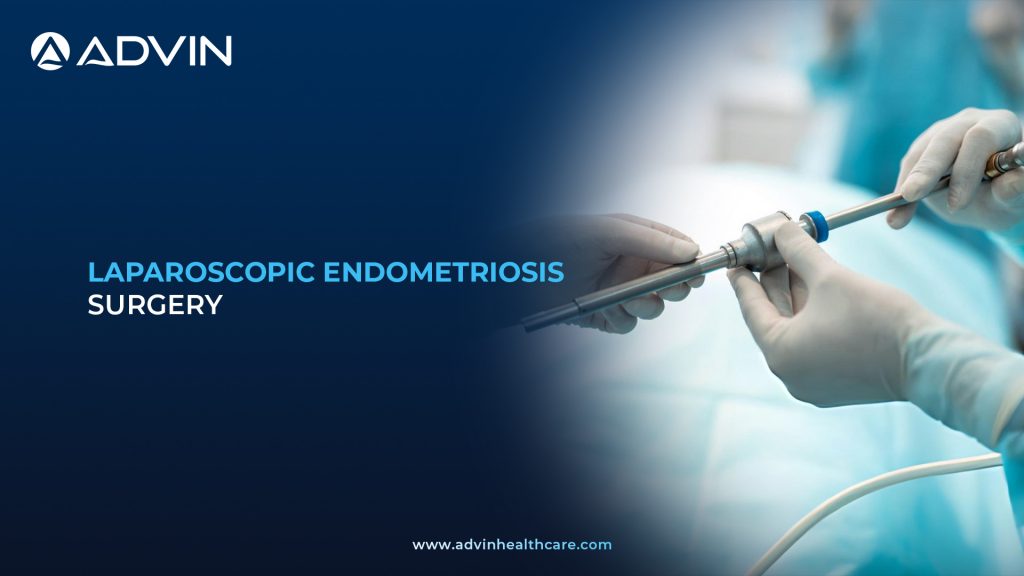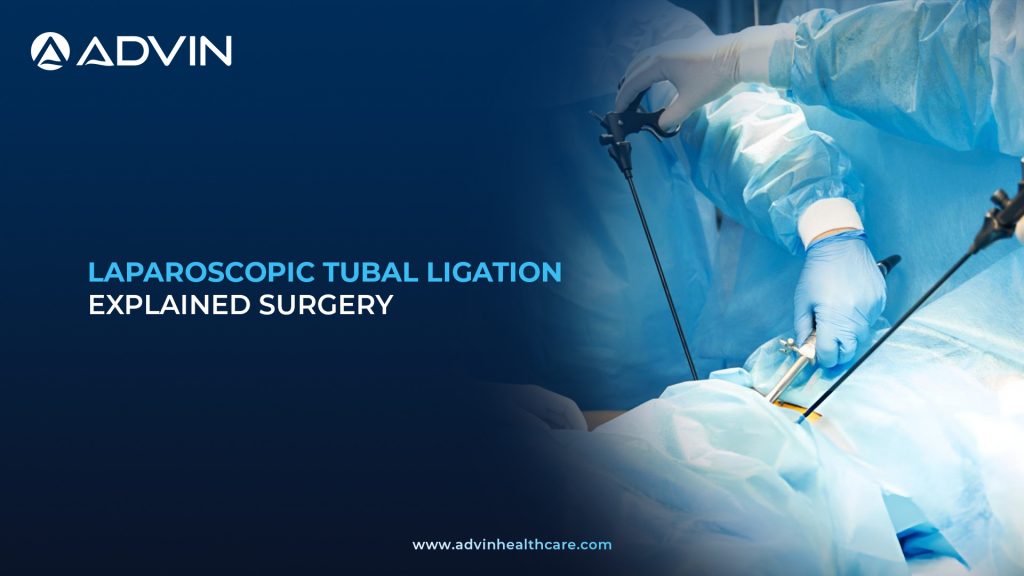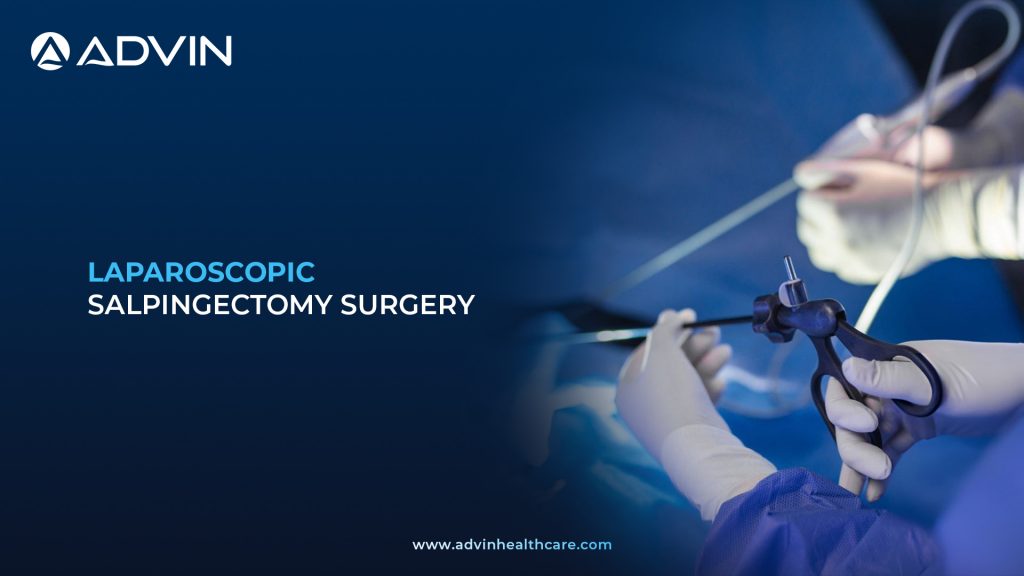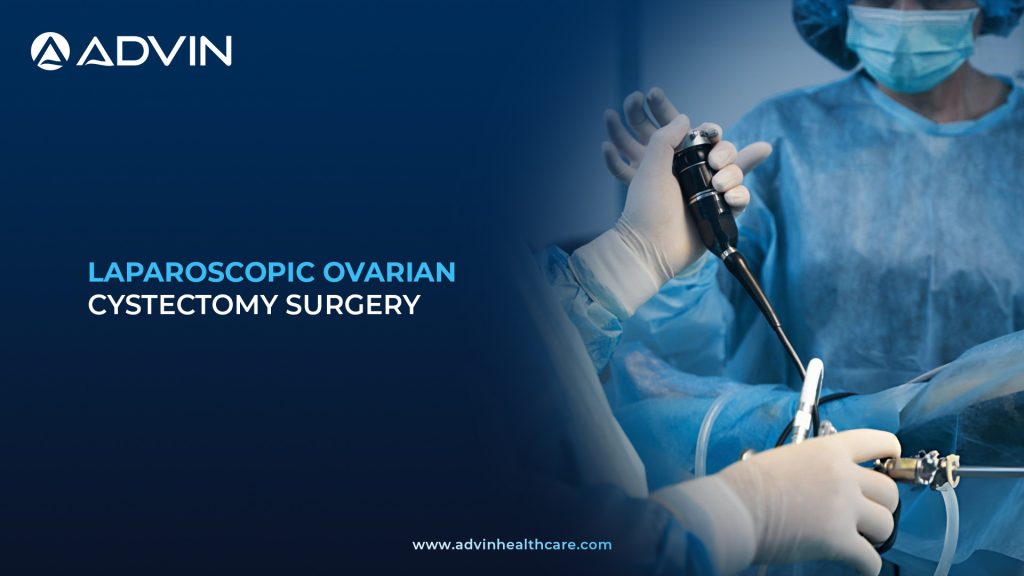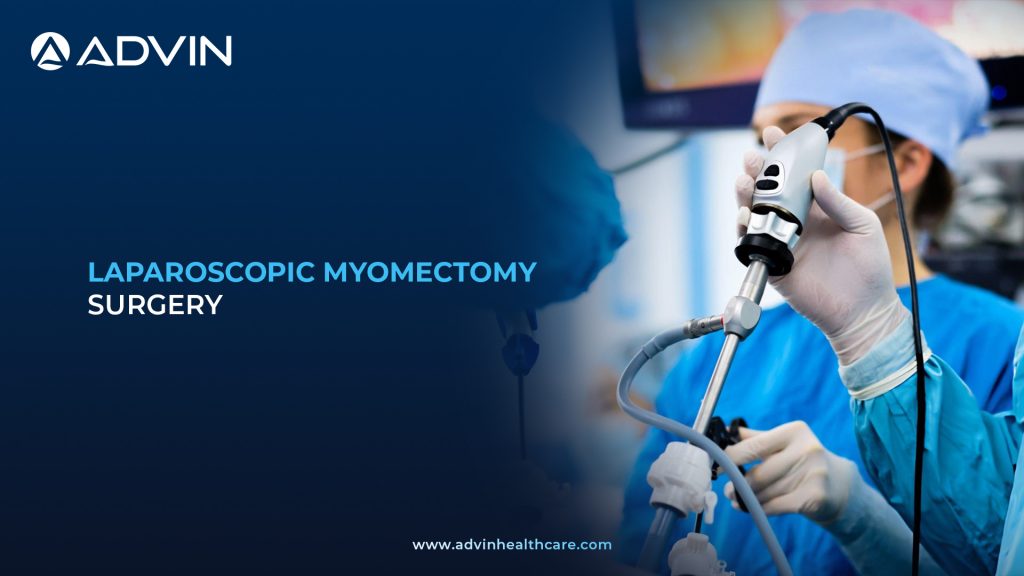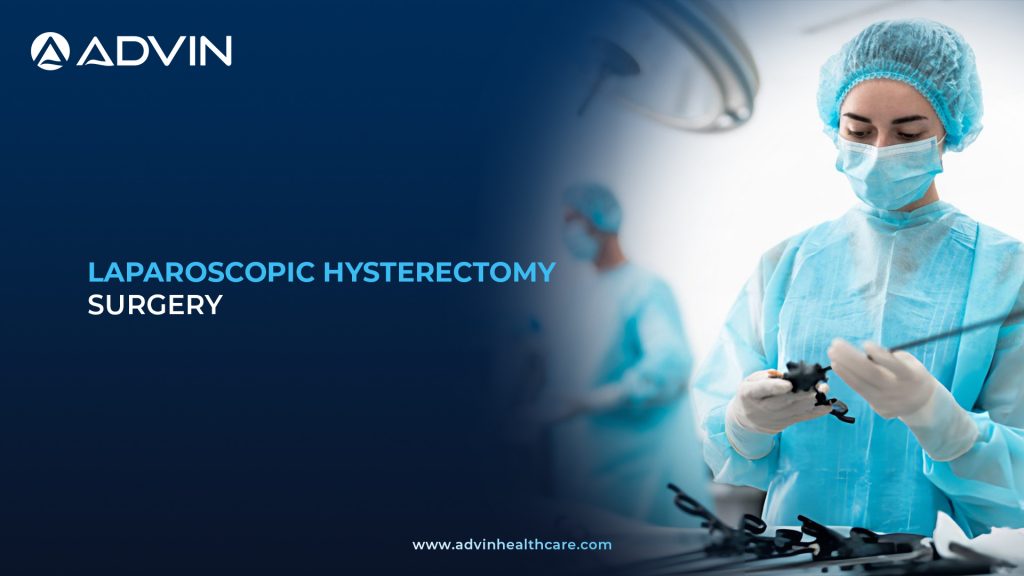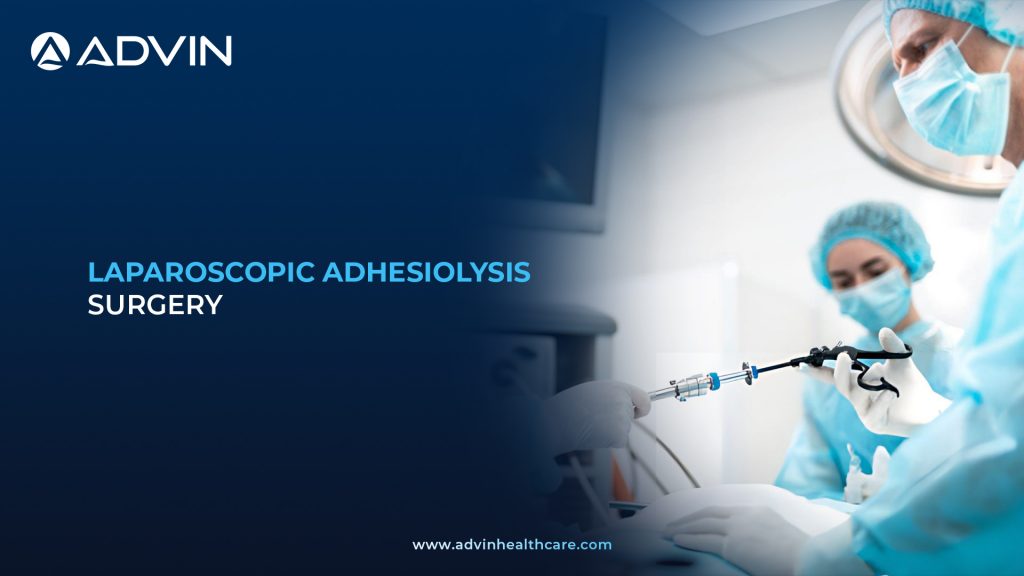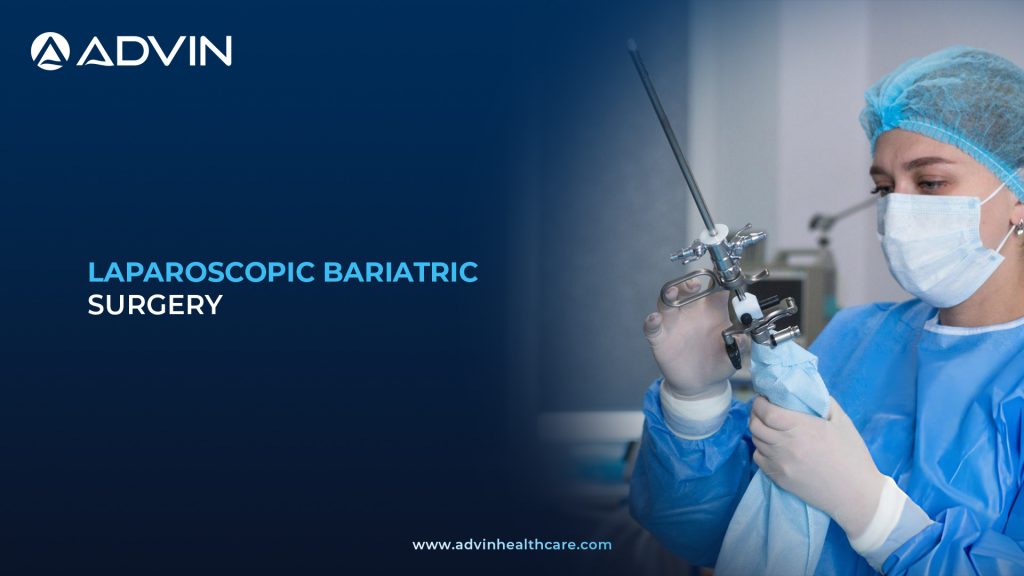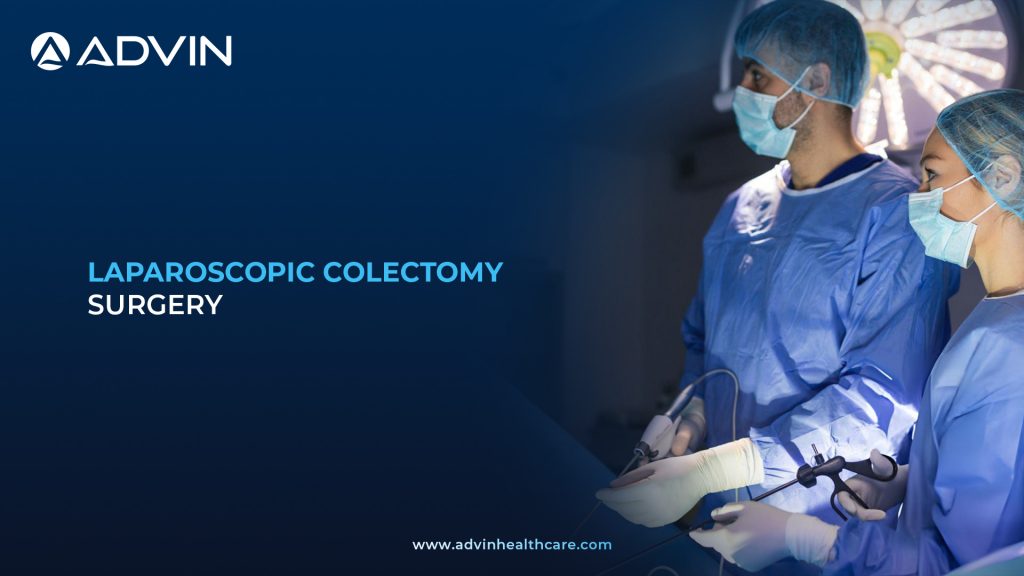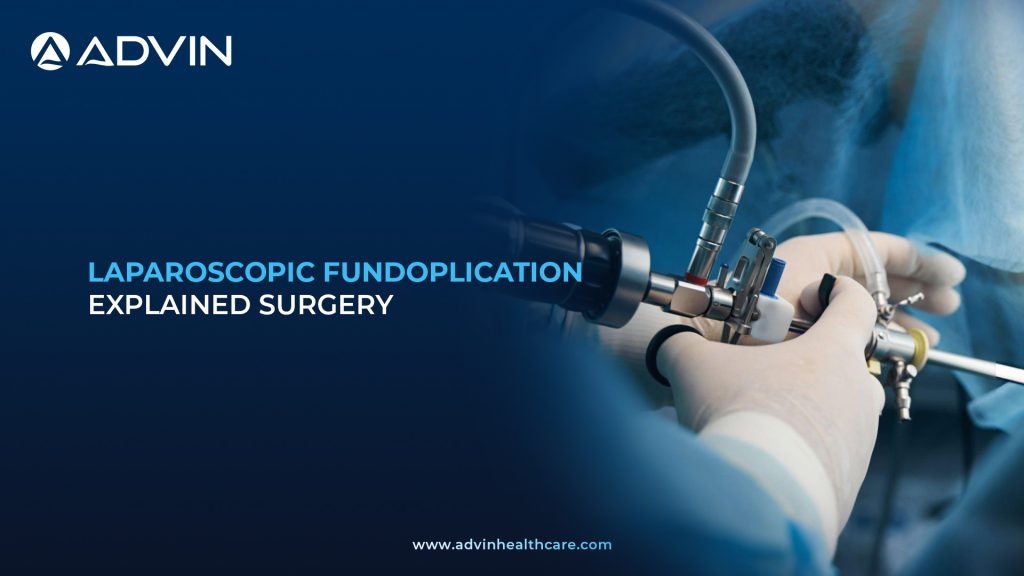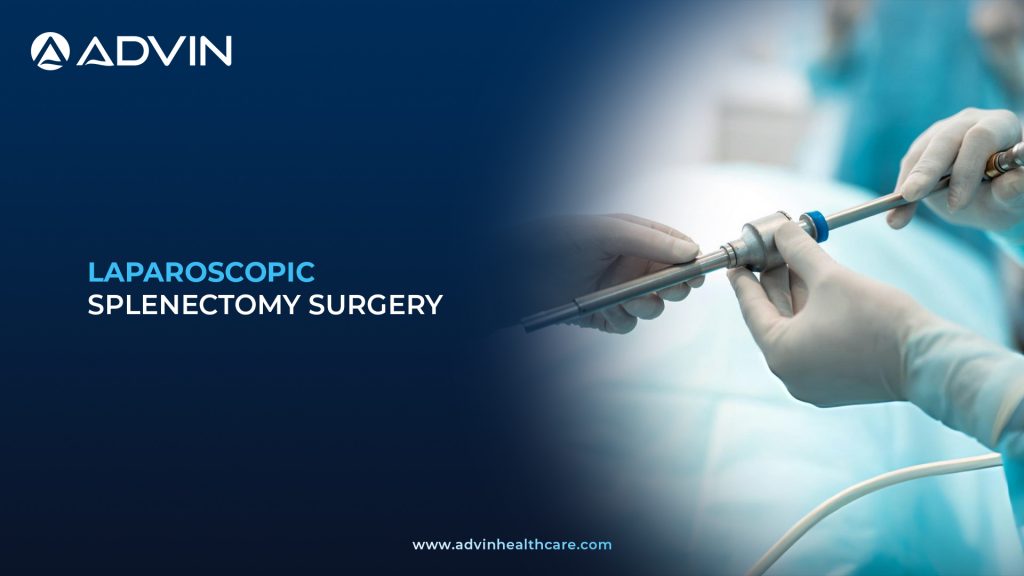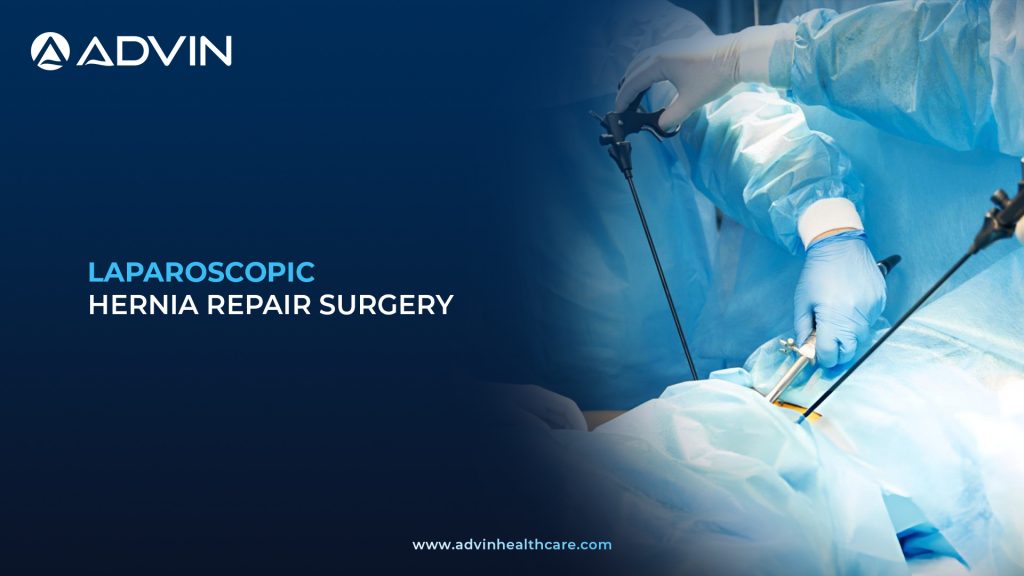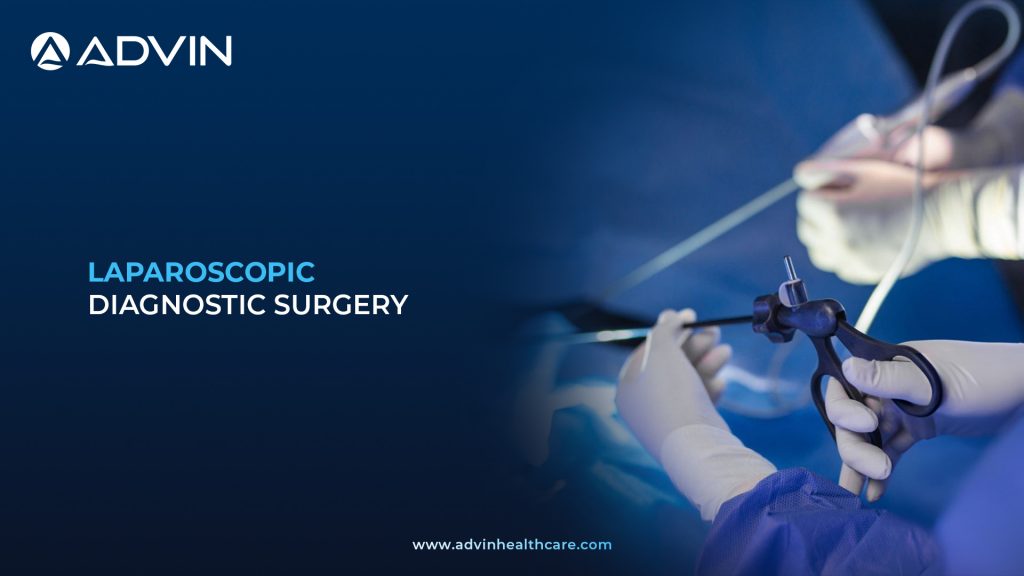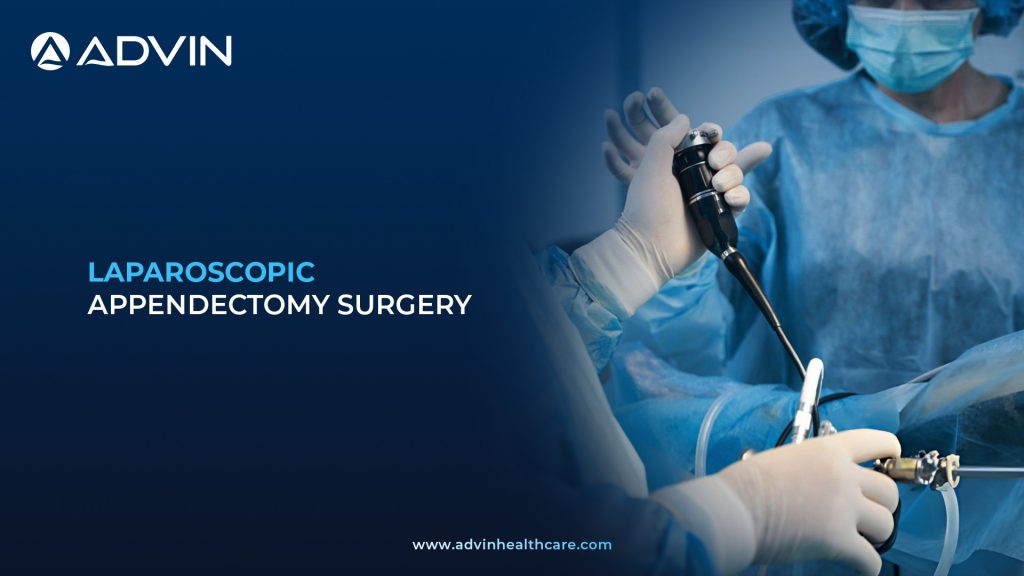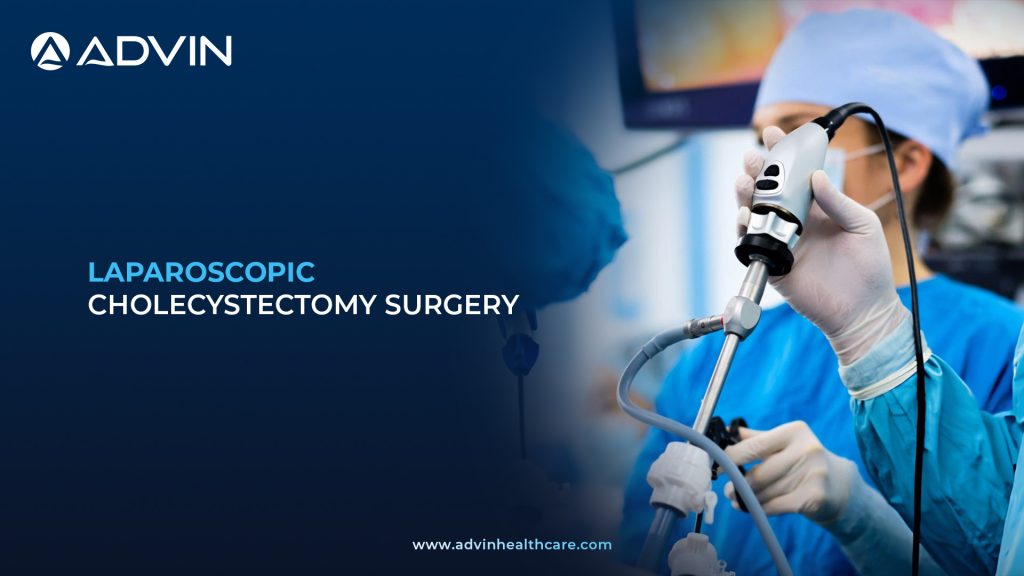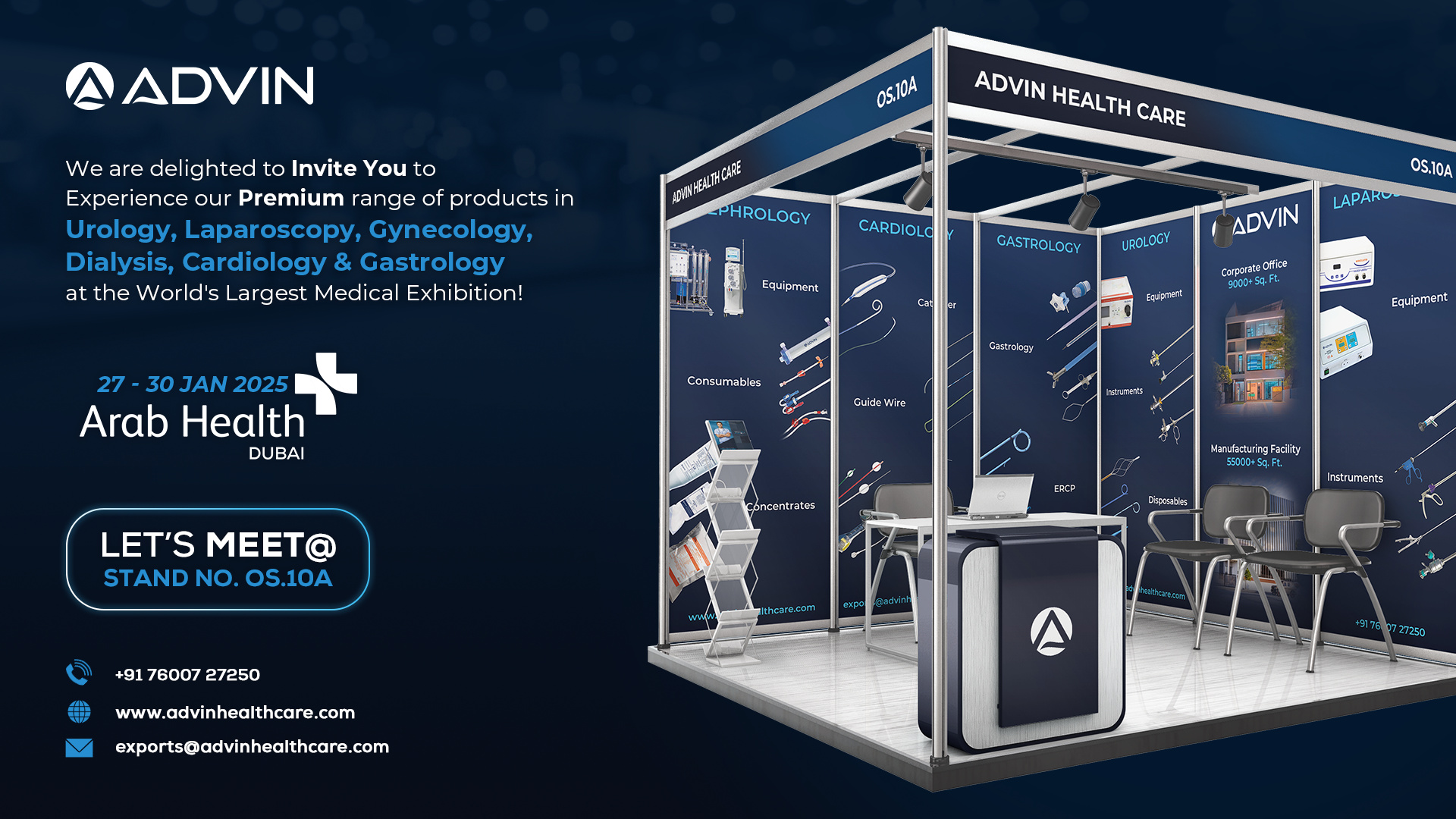Laparoscopic Appendectomy in Children Surgery – High-Precision Pediatric Surgery with Faster Recovery
 Advin Health Care
Advin Health Care
 February 14, 2026
February 14, 2026
Overview of Pediatric Laparoscopic Appendectomy Laparoscopic appendectomy (pediatric) is a minimally invasive surgery to remove an inflamed appendix in children. It is commonly performed to treat acute appendicitis. The procedure allows faster recovery with less pain and smaller scars. Minimally Invasive Laparoscopic Technique for Pediatric Appendix Removal Laparoscopic appendectomy in...
Read More
Laparoscopic Pediatric Hernia Repair Surgery – Modern Pediatric Surgical Method with Faster Recovery
 Advin Health Care
Advin Health Care
 February 14, 2026
February 14, 2026
Overview of Laparoscopic Pediatric Hernia Repair Laparoscopic pediatric hernia repair is a minimally invasive surgery to treat hernias in children. It is commonly performed for inguinal hernias. The procedure uses small incisions and a camera for safe and precise repair. Minimally Invasive Laparoscopic Technique for Pediatric Hernia Management Laparoscopic pediatric...
Read More
Laparoscopic Undescended Testis Surgery – Advanced Endoscopic Technique for Testicular Descent Correction
 Advin Health Care
Advin Health Care
 February 13, 2026
February 13, 2026
Overview of Laparoscopic Undescended Testis Surgery Laparoscopic undescended testis surgery is a minimally invasive procedure to locate and reposition a testicle that has not descended into the scrotum. It is commonly performed in children but can also be done in adults. The surgery helps restore normal testicular position and function....
Read More
Laparoscopic PUJ Obstruction Surgery – Modern Urologic Solution for Hydronephrosis Management
 Advin Health Care
Advin Health Care
 February 13, 2026
February 13, 2026
Overview of Laparoscopic PUJ Obstruction Surgery Laparoscopic PUJ obstruction surgery is a minimally invasive procedure to treat blockage between the kidney and ureter. This blockage prevents normal urine flow and can damage the kidney over time. The surgery helps restore proper drainage and protect kidney function. Minimally Invasive Laparoscopic Technique...
Read More
Laparoscopic Ectopic Pregnancy Surgery – Advanced Endoscopic Technique for Emergency Tubal Surgery
 Advin Health Care
Advin Health Care
 February 12, 2026
February 12, 2026
Overview of Laparoscopic Ectopic Pregnancy Surgery Laparoscopic ectopic pregnancy surgery is a minimally invasive procedure to treat pregnancy developing outside the uterus. It is most commonly performed when the pregnancy is located in the fallopian tube. The surgery helps protect the patient’s health and preserve future fertility. Minimally Invasive Laparoscopic...
Read More
Laparoscopic Endometriosis Surgery – Modern Gynecologic Solution for Pain Relief and Fertility Preservation
 Advin Health Care
Advin Health Care
 February 12, 2026
February 12, 2026
Overview of Laparoscopic Tubal Ligation Procedure Laparoscopic endometriosis surgery is a minimally invasive procedure to treat endometriosis. It removes or destroys abnormal tissue growing outside the uterus. This surgery helps reduce pain and improve fertility. Minimally Invasive Laparoscopic Technique for Female Sterilization Laparoscopic endometriosis surgery is performed under general anesthesia...
Read More
Laparoscopic Tubal Ligation Explained Surgery – Stepwise Minimally Invasive Approach to Tubal Occlusion.
 Advin Health Care
Advin Health Care
 February 11, 2026
February 11, 2026
Overview of Laparoscopic Tubal Ligation Procedure Laparoscopic tubal ligation is a minimally invasive procedure for permanent female sterilization. It works by blocking or sealing the fallopian tubes to prevent pregnancy. The surgery is safe and allows quick recovery. Minimally Invasive Laparoscopic Technique for Female Sterilization Laparoscopic tubal ligation is performed...
Read More
Laparoscopic Salpingectomy Surgery – Minimally Invasive Approach for Tubal Disease Management.
 Advin Health Care
Advin Health Care
 February 11, 2026
February 11, 2026
Overview of Laparoscopic Salpingectomy Procedure Laparoscopic salpingectomy is a minimally invasive surgery to remove one or both fallopian tubes. It is performed using small incisions and a camera. This procedure helps treat tubal disease while allowing faster recovery. Minimally Invasive Laparoscopic Technique for Fallopian Tube Removal Laparoscopic salpingectomy is performed...
Read More
Laparoscopic Ovarian Cystectomy Surgery – Advanced Endoscopic Technique for Treating Ovarian Cysts
 Advin Health Care
Advin Health Care
 February 10, 2026
February 10, 2026
Overview of Laparoscopic Ovarian Cystectomy Procedure Laparoscopic ovarian cystectomy is a minimally invasive surgery to remove cysts from the ovary. It helps treat ovarian cysts while preserving healthy ovarian tissue. This procedure supports faster recovery with less pain. Minimally Invasive Laparoscopic Technique for Ovarian Cyst Removal Laparoscopic ovarian cystectomy is...
Read More
Laparoscopic Myomectomy Surgery – Advanced Endoscopic Technique for Fertility-Preserving Fibroid Surgery
 Advin Health Care
Advin Health Care
 February 10, 2026
February 10, 2026
Overview of Laparoscopic Myomectomy Procedure Laparoscopic myomectomy is a minimally invasive surgery to remove fibroids from the uterus. It preserves the uterus while treating symptoms caused by fibroids. This procedure supports faster recovery with less pain. Minimally Invasive Laparoscopic Technique for Fibroid Removal Laparoscopic myomectomy is performed under general anesthesia...
Read More
Laparoscopic Hysterectomy Surgery – Minimally Invasive Procedure for Safe Uterus Removal
 Advin Health Care
Advin Health Care
 February 10, 2026
February 10, 2026
Overview of Laparoscopic Hysterectomy Procedure Laparoscopic hysterectomy is a minimally invasive surgery to remove the uterus. It is performed using small incisions and a camera instead of open surgery. This method helps reduce pain and speed up recovery. Minimally Invasive Laparoscopic Technique for Uterus Removal Laparoscopic hysterectomy is performed under...
Read More
Laparoscopic Adhesiolysis Surgery – Modern Surgical Solution for Adhesion-Related Complications
 Advin Health Care
Advin Health Care
 February 10, 2026
February 10, 2026
Overview of Laparoscopic Adhesiolysis Procedure Laparoscopic adhesiolysis is a minimally invasive surgery to remove internal scar tissue called adhesions. These adhesions can cause pain or block normal organ movement. The procedure helps restore normal anatomy and function. Minimally Invasive Laparoscopic Technique for Adhesion Release Laparoscopic adhesiolysis is performed under general...
Read More
Laparoscopic Bariatric Surgery – High-Precision Approach for Long-Term Metabolic and Weight Control
 Advin Health Care
Advin Health Care
 February 10, 2026
February 10, 2026
Overview of Laparoscopic Bariatric Surgery Laparoscopic bariatric surgery is a minimally invasive procedure designed to help with significant weight loss. It works by reducing stomach size or changing digestion to limit food intake. This surgery also helps improve obesity-related health conditions. Minimally Invasive Laparoscopic Techniques for Weight Loss Surgery Laparoscopic...
Read More
Laparoscopic Colectomy Surgery – Advanced Endoscopic Technique for Colorectal Disease Management
 Advin Health Care
Advin Health Care
 February 10, 2026
February 10, 2026
Overview of Laparoscopic Colectomy Procedure Laparoscopic colectomy is a minimally invasive surgery to remove a part or whole of the colon. It is performed using small incisions and a camera instead of open surgery. This approach reduces pain and supports faster recovery. Minimally Invasive Laparoscopic Technique for Colon Resection Laparoscopic...
Read More
Laparoscopic Fundoplication Explained Surgery – Minimally Invasive Treatment for GERD and Acid Reflux
 Advin Health Care
Advin Health Care
 February 10, 2026
February 10, 2026
Overview of Laparoscopic Fundoplication Procedure Laparoscopic fundoplication is a minimally invasive surgery used to treat severe acid reflux. It strengthens the valve between the esophagus and stomach. This procedure helps prevent acid from flowing back into the food pipe. Minimally Invasive Laparoscopic Technique for Anti-Reflux Surgery Laparoscopic fundoplication is performed...
Read More
Laparoscopic Salpingectomy Surgery – Advanced Endoscopic Technique for Treating Tubal Pathologies
 Advin Health Care
Advin Health Care
 February 9, 2026
February 9, 2026
Overview of Laparoscopic Salpingectomy Procedure Laparoscopic salpingectomy is a minimally invasive surgery to remove one or both fallopian tubes. It is performed using small incisions and a camera. This procedure helps treat tubal disease while allowing faster recovery. Minimally Invasive Laparoscopic Technique for Fallopian Tube Removal Laparoscopic salpingectomy is performed...
Read More
Laparoscopic Hernia Repair Surgery – Modern Surgical Solution for Faster Recovery and Reduced Pain
 Advin Health Care
Advin Health Care
 February 6, 2026
February 6, 2026
Overview of Laparoscopic Hernia Repair (TAPP / TEP) Laparoscopic hernia repair is a minimally invasive surgery used to fix abdominal wall hernias. It is performed using small incisions and a camera instead of open surgery. This technique helps reduce pain and speeds up recovery. Minimally Invasive Laparoscopic Techniques for Inguinal...
Read More
Laparoscopic Diagnostic Surgery – Minimally Invasive Procedure for Accurate Abdominal Evaluation
 Advin Health Care
Advin Health Care
 February 6, 2026
February 6, 2026
Laparoscopic Diagnostic Surgery Introduction Laparoscopic diagnostic surgery is a minimally invasive procedure used to examine organs inside the abdomen and pelvis. It helps doctors identify the cause of unexplained symptoms. The surgery uses small incisions and a camera for clear internal viewing. Minimally Invasive Visual Examination of Abdominal Organs Laparoscopic...
Read More
Laparoscopic Appendectomy Surgery – Advanced Endoscopic Technique for Treating Acute Appendicitis
 Advin Health Care
Advin Health Care
 February 4, 2026
February 4, 2026
Overview of Laparoscopic Appendectomy Procedure Laparoscopic appendectomy is a minimally invasive surgery to remove an inflamed appendix. It is commonly performed to treat acute appendicitis. This approach allows faster recovery with less pain. Minimally Invasive Laparoscopic Technique for Appendix Removal Laparoscopic appendectomy is performed under general anesthesia to ensure patient...
Read More
Laparoscopic Cholecystectomy Surgery – Modern Surgical Solution for Symptomatic Cholelithiasis
 Advin Health Care
Advin Health Care
 February 4, 2026
February 4, 2026
Overview of Laparoscopic Cholecystectomy Procedure Laparoscopic cholecystectomy is a minimally invasive surgery to remove the gallbladder. It is commonly performed to treat gallstones and gallbladder disease. The procedure allows faster recovery with less pain. Minimally Invasive Laparoscopic Technique for Gallbladder Removal Laparoscopic cholecystectomy is performed under general anesthesia to ensure...
Read More

